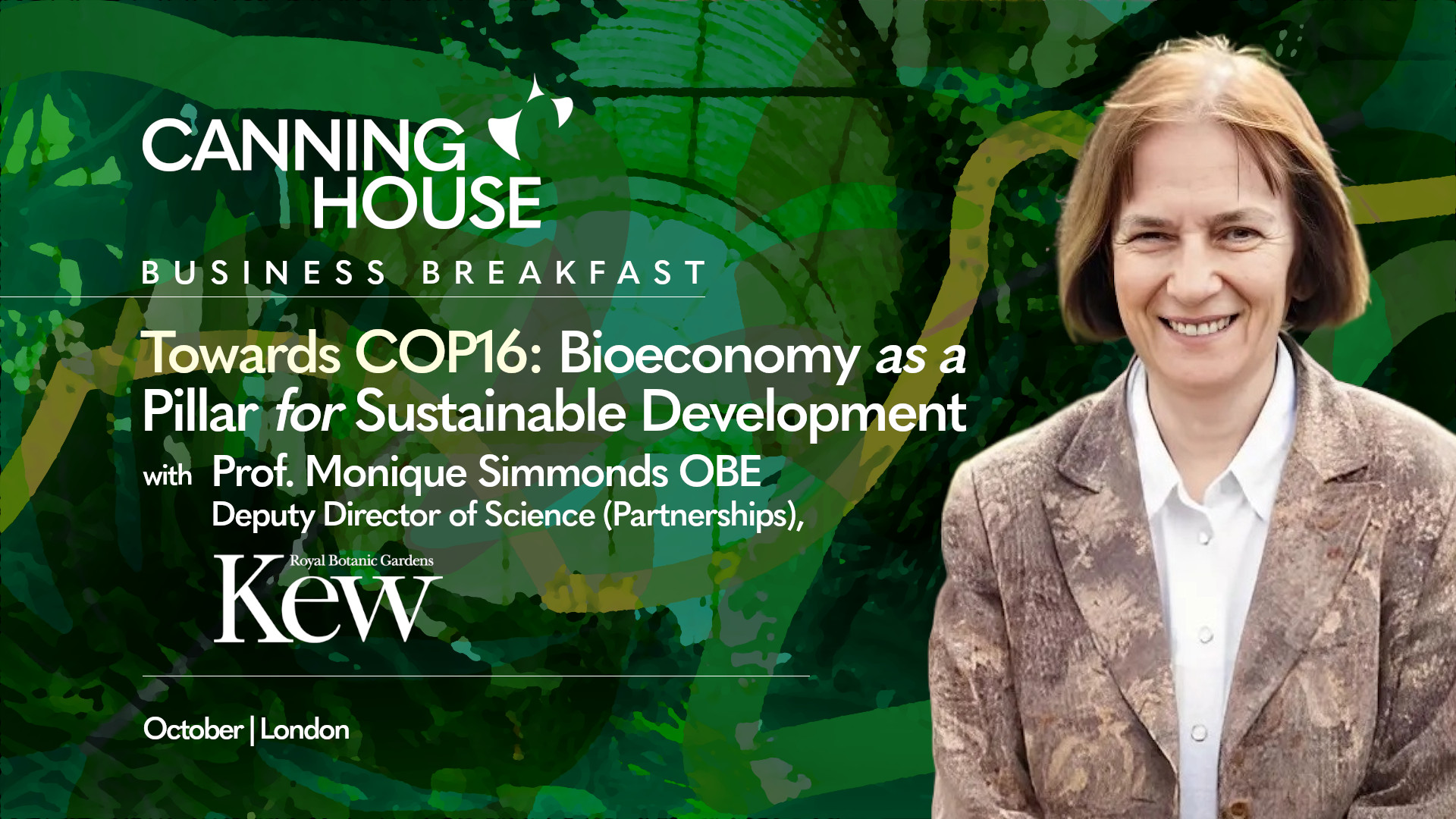Protecting biodiversity, boosting economies – COP16 in Colombia

Reading time: 3 mins approx.
From 21 October to 1 November, Cali, Colombia hosts the 2024 United Nations Biodiversity Conference – COP16. Ahead of the conference, Canning House asked the team at the Royal Botanic Gardens, Kew to provide some insights on the critical importance of biodiversity to the economies of Latin America and the wider world.
How protecting plants and fungi can halt biodiversity loss and support a green economy
For over two centuries the Royal Botanic Gardens, Kew (RBG Kew) has dedicated itself to exploring nature, discovering and describing plant and fungal species, investigating their uses, and sharing their beauty and potential with the world. However, RBG Kew’s own State of the World’s Plants and Fungi 2023 report highlights the severe threat biodiversity loss poses to our planet – and the fact that three-quarters of as-yet-undescribed plant species globally are already likely to be threatened with extinction.
Once a plant species goes extinct, it is lost forever, along with its unique ecosystem contributions. Therefore, the potential impact of biodiversity loss on humanity cannot be overstated. Our medicine, food, and clothing all depend on rich biodiversity; it supports all life on earth and provides essential ecosystem services like weather regulation and carbon sequestration, amongst others.
Biodiversity as a foundation of a green economy
As countries around the world seek to transition away from fossil-fuel based economies, the bioeconomy—centred on the sustainable development of natural resources—offers a powerful alternative. This approach promotes circularity and the sustainable use of biological assets to drive innovation, resilience, and green growth.
RBG Kew works with international partners, including in countries across Latin America and the Caribbean, to understand the local biodiversity, study useful traits in plants and fungi, and consider sustainable economic opportunities based on these. Across this region and others, Kew’s projects are providing local communities (and countries) with livelihoods and benefits, whilst protecting the local biodiversity and reducing the impact on the wider environment.
In Colombia, RBG Kew and local partners mapped plant and fungal diversity as part of the Useful Plants and Fungi of Colombia (UPFC) project, which aimed to promote the sustainable use of natural resources and green growth. The project set out to explore this untapped diversity and document uses in medicine, biotechnology, and nutrition, especially among indigenous communities. They developed an open-access portal, making this information accessible, with the aim of promoting a market for useful native species.
Meanwhile, in Ethiopia, Kew scientists started working with local farmers and Hand-Roasted Union coffee because climate change was already affecting coffee production and farmers were clearing forest for other crops. Ten years on, having worked with them to grow local species of wild coffee as a speciality product, the forest cover has recovered, local biodiversity has been enhanced, and farmers are generating a higher income. This work is being replicated in other countries and with other commodity crops.
The critical decade for action
The urgency of halting and reversing biodiversity loss was front and centre two years ago at the UN Biodiversity Conference (COP15) in Montreal, where governments came together to adopt an ambitious set of biodiversity targets, known as the Global Biodiversity Framework (GBF). This month, as they meet again for COP16 in Cali, Colombia, discussions will hinge on collective ambition, progress, and funding.
As the UN has repeatedly warned, action this decade is critical. Biodiversity loss is accelerating, impacted by land use, climate change, over-exploitation and pollution. The window for action is closing if we are to deliver on the GBF targets by 2030, but there is still an opportunity to change course. Tackling the biodiversity crisis in this timeframe will, however, require an unprecedented collaborative and concerted effort across all sectors. Whether they step up at COP16 remains to be seen.
Towards COP16: Bioeconomy as a Pillar for Sustainable Development

In October, Canning House is holding a Business Breakfast with Prof. Monique Simmons OBE, Deputy Director of Science (Partnerships) at RBG Kew, on the theme "Towards COP16: Bioeconomy as a Pillar for Sustainable Development." Click below to learn more:

Click here


